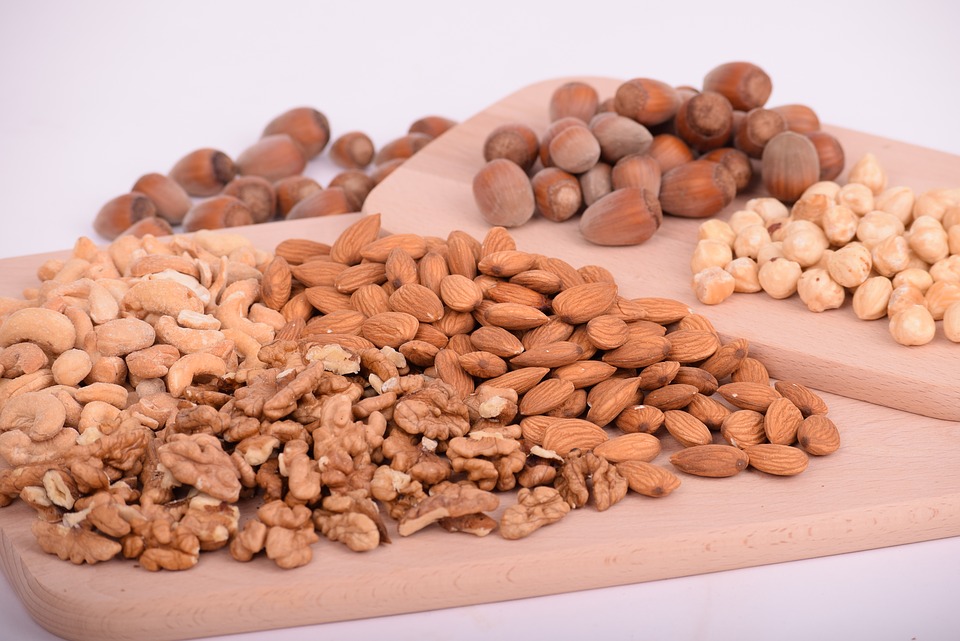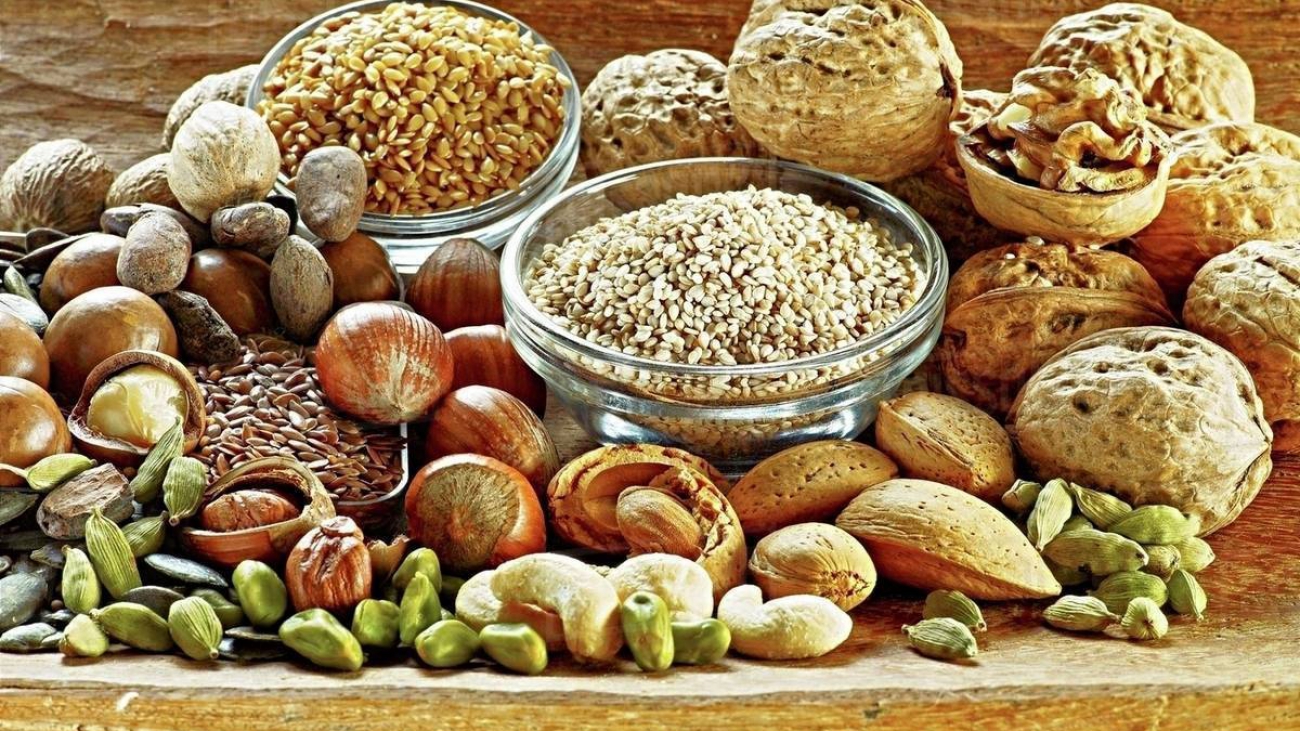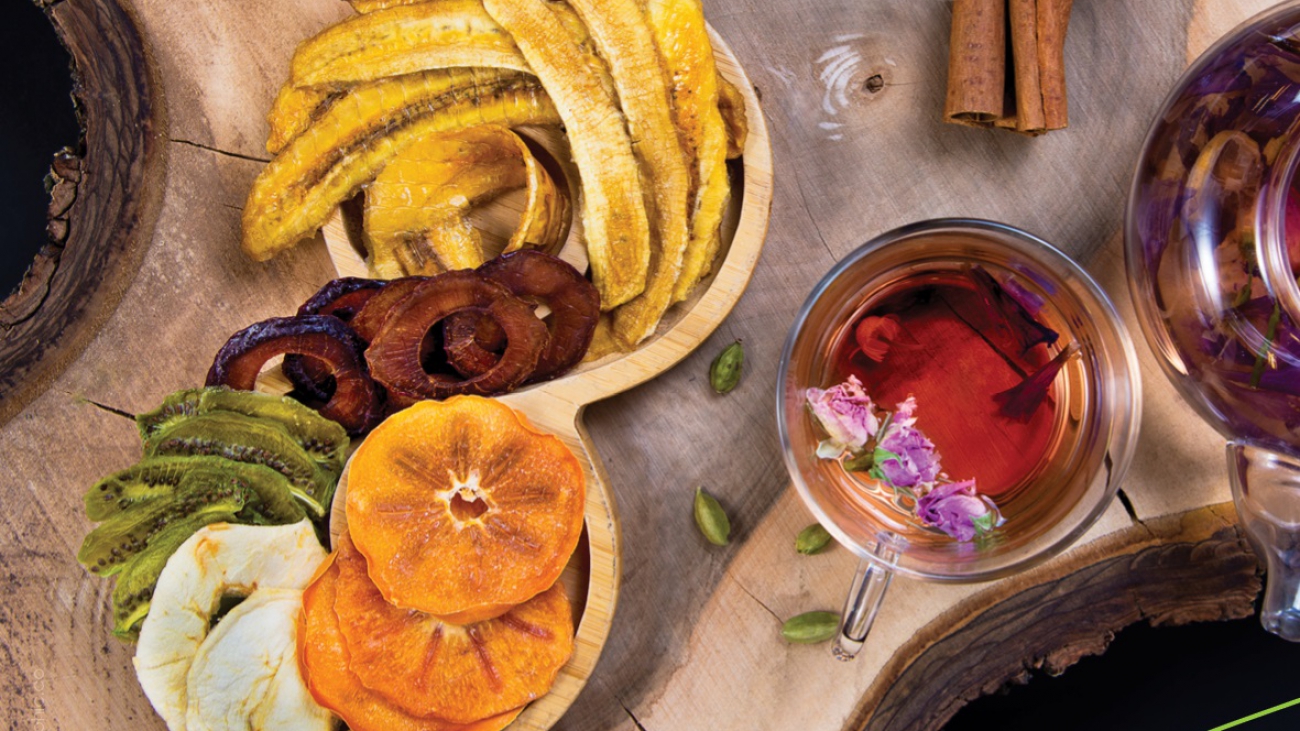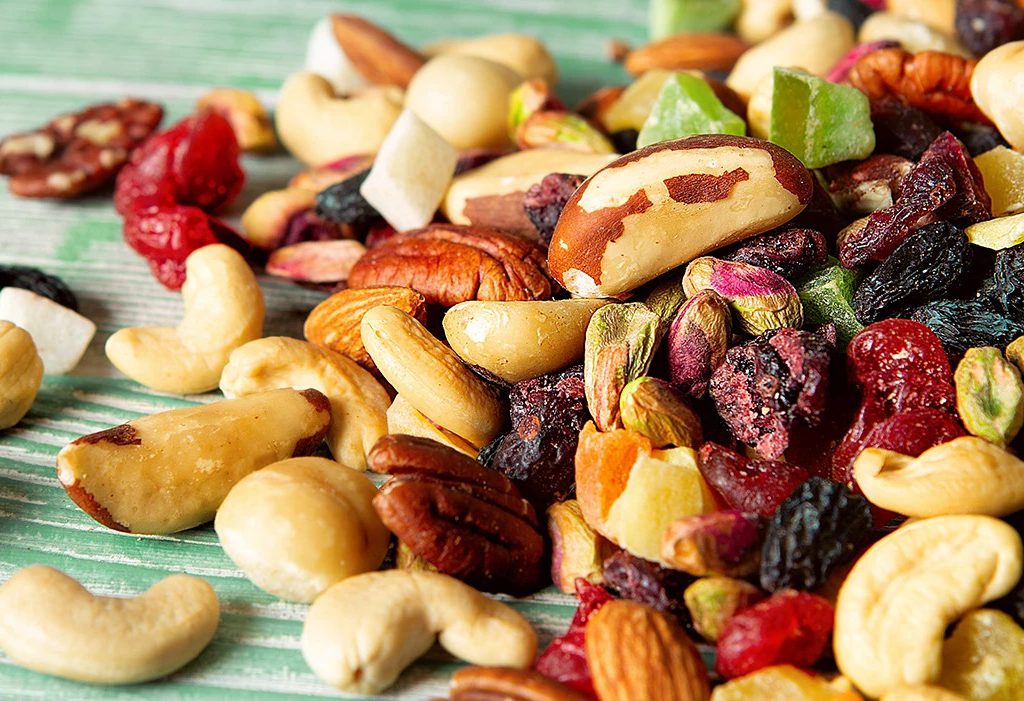In recent years there has been a slow but continuous increase in attraction to vegetarian or even vegan diets, especially among younger individuals. They offer many health benefits but in order to avoid nutritional deficiencies and to provide all essential nutritional components a vegan diet needs to be planned with more consideration and more knowledge than an omnivorous. Including nuts in a vegan diet can be a cornerstone in a well-balanced and palatable food-pattern.
What does vegan mean?
A vegan diet is a strict form of vegetarianism and is characterized by the total avoidance of products derived from animals. Vegans do not consume any kind of meat, seafood, dairy-products, eggs or any other animal product, such as honey or gelatin. A balanced vegan diet is consisting of plant based foods including fruits, vegetables, legumes, nuts, seeds and grains.
There are only few studies including vegans as an experimental group, but when vegan diets are directly compared to vegetarian and omnivorous diets, they show a variety of protective health benefits. Vegetarian diets conferred protection against metabolic and cardiovascular diseases and also some cancers. Vegan diets in particular provided additional protection against obesity, hypertension, type 2 diabetes, cardiovascular mortality and showed a reduced risk of incidence from total cancer.
Health benefits of nuts
A current scientific review pointed out that higher nut consumption is associated with a lower risk of all-cause mortality and cardiovascular diseases, that are still No. 1 when it comes to causes of death worldwide, according to the WHO-statistics. However, a 100 % plant-based diet may increase the risk of certain nutritional deficiencies including protein, iron, zinc, calcium, long-chain omega-3 fatty acids and vitamin B12 and vegans needs to plan the composition of their nutrition with due care. Adding various kinds of nutrient-dense nuts makes a significant contribution to a vegan diet because each kind of nut offers different dietary benefits.
Nuts do not only provide energy, complex carbohydrates with a low glycemic index, fiber and essential fatty acids but also high amounts of protein. Pistachios, almonds and peanuts are among the protein-rich foods, only 50 g of pistachios contain more protein than a typical egg. The combination of fiber, protein and fat in nuts provides satiety to meals and snacks. Whereas in a mixed diet vitamin B2 (riboflavin) is covered by milk-products and cheese vegans can add almonds, pistachios and cashews. Walnuts are an excellent source of alpha-linolenic acid, an important essential omega 3 fatty acid. Macadamias provide the highest content of health-promoting monounsaturated fatty-acids and are also rich in omega-7-fatty-acids, which are getting more into the scientific focus.

Nuts contribution into a vegan diet
Calcium can be obtained from plant-based foods like almonds, pistachios, hazelnuts and brazil nuts. In addition, the last mentioned has the highest coverage of selenium. When it comes to the supply for zinc, vegans need to make smart choices because the highest amounts are naturally found in animal products like meat and cheese. Again, nuts can make a contribution, especially brazil nuts and pine nuts. It is more difficult to obtain iron from plant-based foods, but the combination with vitamin C-rich fruits and vegetables helps absorbing iron from cashews, almonds, pistachios or hazelnuts.
If people choose to live raw-vegan they do not eat cooked foodstuffs. Nuts in a vegan diet are even more important diet because vegans exclude legumes as protein-sources from their diet.
Nuts in a vegan diet do not only provide essential nutrients to prevent deficiencies and one-sidedness but are also an enrichment in flavor and variety. Nuts are characterized by being “ready to eat” and easy to transport as a snack. They can be added to various dishes either cooked, raw or soaked and finely ground for spreads, ice-cream and milk. It can be expected, that vegan eaters can boost the demand for nuts.
How do you perform? If vegan, do you include nuts in your choices?
Ref: International Nut and Dried Fruit Council







